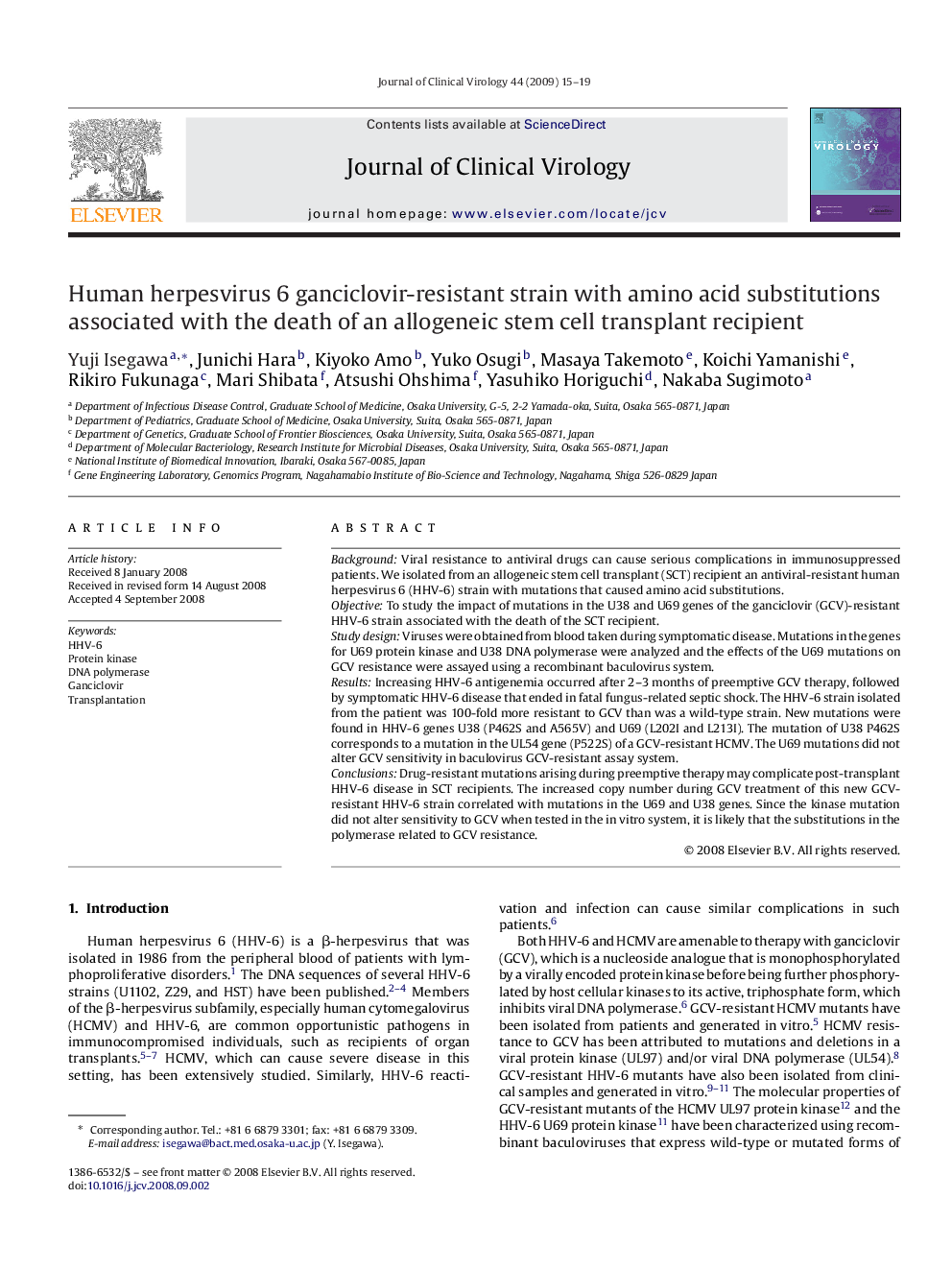| Article ID | Journal | Published Year | Pages | File Type |
|---|---|---|---|---|
| 3369851 | Journal of Clinical Virology | 2009 | 5 Pages |
BackgroundViral resistance to antiviral drugs can cause serious complications in immunosuppressed patients. We isolated from an allogeneic stem cell transplant (SCT) recipient an antiviral-resistant human herpesvirus 6 (HHV-6) strain with mutations that caused amino acid substitutions.ObjectiveTo study the impact of mutations in the U38 and U69 genes of the ganciclovir (GCV)-resistant HHV-6 strain associated with the death of the SCT recipient.Study designViruses were obtained from blood taken during symptomatic disease. Mutations in the genes for U69 protein kinase and U38 DNA polymerase were analyzed and the effects of the U69 mutations on GCV resistance were assayed using a recombinant baculovirus system.ResultsIncreasing HHV-6 antigenemia occurred after 2–3 months of preemptive GCV therapy, followed by symptomatic HHV-6 disease that ended in fatal fungus-related septic shock. The HHV-6 strain isolated from the patient was 100-fold more resistant to GCV than was a wild-type strain. New mutations were found in HHV-6 genes U38 (P462S and A565V) and U69 (L202I and L213I). The mutation of U38 P462S corresponds to a mutation in the UL54 gene (P522S) of a GCV-resistant HCMV. The U69 mutations did not alter GCV sensitivity in baculovirus GCV-resistant assay system.ConclusionsDrug-resistant mutations arising during preemptive therapy may complicate post-transplant HHV-6 disease in SCT recipients. The increased copy number during GCV treatment of this new GCV-resistant HHV-6 strain correlated with mutations in the U69 and U38 genes. Since the kinase mutation did not alter sensitivity to GCV when tested in the in vitro system, it is likely that the substitutions in the polymerase related to GCV resistance.
